As Queen’s alumni, we know it’s often the lessons learned outside the classroom (and sometimes even on the other side of the world!) that make the biggest difference.
Just ask Eve Purdy.
Eve is a fourth-year Queen’s medical student currently in Tanzania at a community health clinic founded by Dr. Karen Yeates, who is co-director of the Queen’s School of Medicine’s Office of Global Health along with Dr. Jenn Carpenter. Eve is spending three weeks caring for patients in the clinic, which started with a focus on empowering women through health, but now cares for families as well. Travelling to rural villages as part of a medical outreach team, she’s promoting health and wellness to patients at the clinic and in rural communities who, in many cases, have never been seen by a physician.
Pandemics and disease appear all around us today, and we understand now more than ever the growing importance of a global perspective on critical health issues. Queen’s offers this perspective to the next generation of health leaders like Eve and her colleagues.
In the last four years alone, close to 100 Queen’s students have learned firsthand what it’s like to practice medicine in a different culture, with scarce resources.
Medical student Amy Chen travelled to Tanzania in 2012. A Chinese-Canadian with a goal of becoming a family doctor, Amy wanted to learn how to adapt best practices to local beliefs and customs.
Amy helped to teach a group of Maasai women how to prevent skin irritation in their newborn babies, who are traditionally rubbed with oil rather than bathed in their first month of life. Amy suggested that they use a cloth to wipe the babies clean and keep the folds of skin dry and free of oil. The women, in turn, shared the practice with other new mothers in neighbouring villages.
Learning how to listen respectfully and adapt to new and unique situations makes Queen’s students better doctors, explains Dr. Yeates. In fact, “it makes them better humans.”
Since returning home, Amy has applied the lessons she learned abroad to benefit Canadians in aboriginal and low-income communities. She is also very involved in the Queen’s MedExplore program, helping to expose local, underprivileged high school students to careers in the medical field. Learning experiences like these change lives — but one-of-a-kind opportunities like the Tanzania global health elective can’t happen without your support. I’m writing to ask you to help keep Queen’s spirit of initiative alive with a monthly gift today to the Queen's Fund.
Supporting Queen’s students as they become doctors is just one of the ways your gift to the Queen’s Fund can help. Your donation today can also help create a supportive environment for students on campus, and attract outstanding faculty like Dr. Yeates, who inspire and serve as positive role models.
When alumni come together to support the Queen’s Fund, we can, quite literally, change lives. And when we support students like Eve and Amy, working on behalf of poor and often marginalized families in Tanzania and other parts of the world, we’re very likely saving lives, too — both abroad and at home.
I’ve already made my gift to help Queen’s students learn and discover, think and do. I hope you’ll join me today. Cha Gheill!
Daniel Woolf, Artsci’80
Principal and Vice-Chancellor

